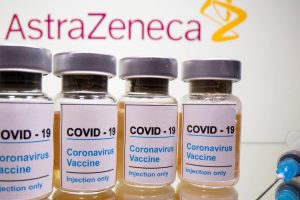Geneva, 19 May (TWN) – Several world leaders, speaking at the opening of the 73rd World Health Assembly (WHA) on Monday, referred to future COVID-19 vaccines as a “global public good”, but the resolution on the COVID-19 response that was adopted on Tuesday failed to reflect this vital concept.
The 73rd WHA is taking place as a virtual meeting on 18-19 May 2020. The Executive Board had decided to hold the session as a virtual de minimis meeting with an abridged agenda. The UN Secretary-General, Presidents of Switzerland, China, France, South Korea, South Africa, the Chancellor of Germany and the Prime Minister of Barbados addressed the Assembly.
In their statements at the high-level segment of the opening of WHA on 18 May, UN Secretary-General Antonio Guterres, President Xi Jinping of China, President Emmanuel Macron of France, and President Moon Jae-in of South Korea termed future COVID-19 vaccines a global public good and also called for equitable access to those vaccines.
Though there is no legal definition of public good, it is commonly understood as having two main characteristics: “non-excludable” and “non-rivalrous”.
A classification of COVID-19 vaccines, which are currently under development, as public goods would free them from intellectual property protection and facilitate the dissemination of technology and mass manufacturing.
This would, in turn, facilitate equitable access to the product within the framework of Universal Health Care.
Guterres expressed hope that the finding of a vaccine for the novel coronavirus is a starting point.
“It is a historic opportunity to step up research and to reduce inequalities in access to medical treatment and medical care,” he said, adding that it is essential that everybody in the world, wherever he or she may be, can have access to medical care and when ready, access to the vaccine which is a global public good.
President Xi said, “COVID-19 vaccine development and deployment in China, when available, will be made a global public good. This will be China’s contribution to ensuring vaccine accessibility and affordability in developing countries.”
President Moon stated that to develop vaccines and treatment, “we must cooperate beyond our borders and such vaccines and treatments are public goods which must be distributed equitably to the whole world”.
President Macron said that the purpose of increased French support to the WHO and its Access to COVID-19 Tools (ACT)-Accelerator is to have “massive support to research to speed up the results of medical research and to ensure we can guarantee universal access”.
He further said that “if we discover a vaccine against COVID-19, it would be a global public good and everyone should have access to it.”
However, the resolution adopted at the WHA on Tuesday does not treat future COVID-19 vaccines as a global public good.
Operational Paragraph 6 of the resolution reads: “Recognizes the role of extensive immunization against COVID-19 as a global public good for health in preventing, containing and stopping transmission to bring the pandemic to an end, once safe, quality, efficacious, effective, accessible and affordable vaccines are available”.
Thus, the resolution treats the extensive immunization against COVID-19 as a global public good but not the vaccines which are the essential commodity for the immunization.
The initial draft of the resolution that was initiated by the European Union appeared to make a link to vaccines as a global public good, by stating the following: “Recognizes population-wide immunization against COVID-19 as a global public good for health and the crucial role of quality, safe, and efficacious vaccines therein”.
More than 100 Member States ended up as co-sponsors to the resolution.
During the pre-WHA negotiations these past weeks, the United States opposed the term “global public good” and the current text is proposed in the Chair’s text as a compromise.
Dr. Canice Nolan of the Permanent Mission of the European Union to the WHO chaired this process.
According to a delegate involved in the negotiations, the lack of a legal definition of global public good was cited to object to the inclusion of the term.
This continued treatment of vaccines as private goods casts concerns that future vaccines against COVID-19 may not be widely accessible because the technology for the production of the vaccine would not be disseminated widely and intellectual property protection would be used to control the dissemination of vaccine technology.
The mechanism for delivering access and affordability might then be through market-shaping mechanisms such as bulk procurement and advanced market commitments rather than de-centralized widespread production.
Advanced market commitments in the past and already happening with potential COVID-19 vaccines favour wealthy countries.
While some donations may be available for the poorest countries, health experts are concerned that developing countries, especially those categorised by the World Bank and IMF as “middle-income” countries, will be left behind when manufacturing is insufficient thus creating shortages and even un-affordable prices.
(Published in SUNS #9124 dated 20 May 2020)




